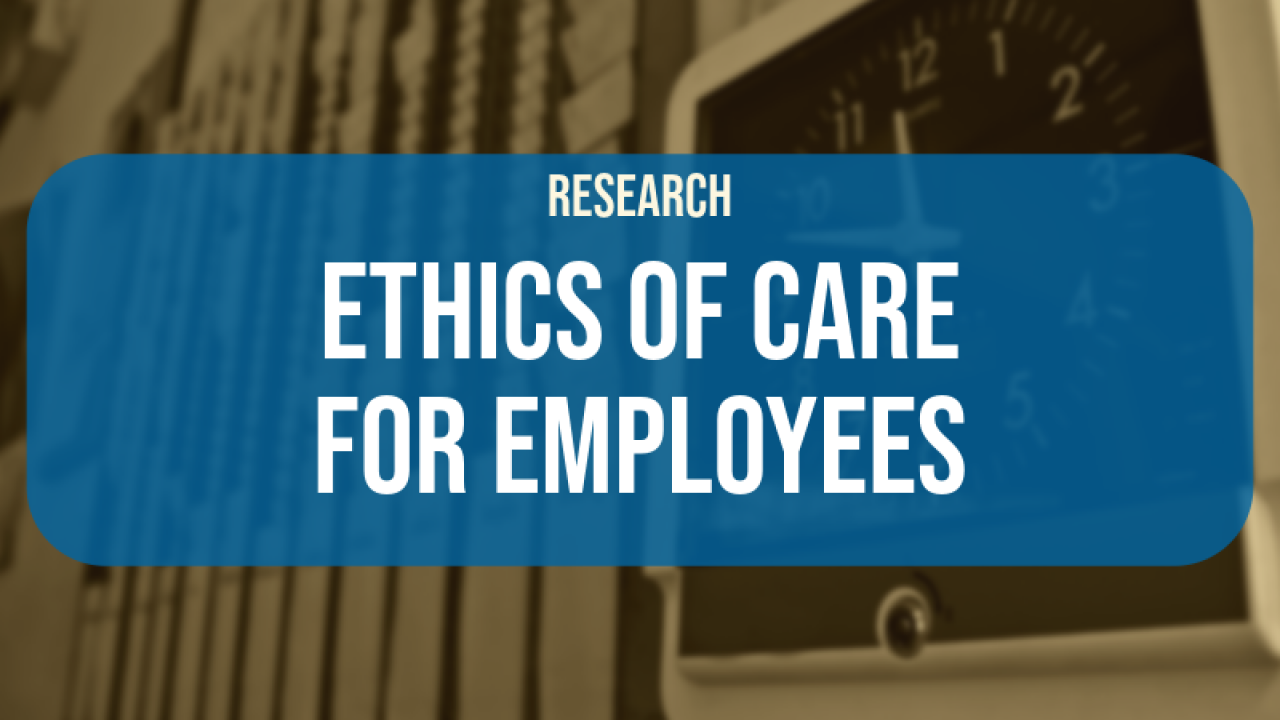May 22, 2024
Examining organizational ethics of care for employees

By Weiting Tao, University of Miami and Yeunjae Lee, Colorado State University
In today’s environment, employee engagement and relationships with their organizations have become particularly fragile. Drastic changes to the workplace in the post pandemic world (e.g., teleworking, relocation, restructuring) have induced psychological stress on employees, leaving them in a vulnerable state.
This has made organizational care for employees a top priority of public relations practice. Meanwhile, global concerns around problematic organizational practices, exemplified by increasing sexual harassment allegations and racial/gender discrimination at the workplace, have also intensified the need for a focus on the care perspective in internal public relations practice and studies.
While organizational ethics of care for employees is central to internal public relations practice, it remains unclear as to how care should be conceptually defined and empirically evaluated. To address such a practical need and research void, we aim to provide a solid conceptual definition and evaluative measure of organizational ethics of care for employees.
Specifically, we conducted 24 in-depth interviews and multiple surveys from more than 800 full-time U.S. employees. Our study results revealed a multi-dimensional structure of the construct, organizational ethics of care for employees. These dimensions include listening to employees, investment in employee development, employee recognition and reward, interpersonal relationships and support, information transparency, employee diversity, employee well-being, autonomy support and flexibility, and problem solving.
Our study provides public relations professionals with a way of understanding and adopting ethics of care as an indispensable practice in building a caring enterprise composed of an engaged and empowered community of employees.
Specifically, a solid conceptual definition and operational measure of ethics of care give professionals and organizational leaders confidence in implementing the care approach. The measurement of care provides them with a diagnostic tool to assess the moral implications of managerial decisions and organizational practices.
Furthermore, the measurement indicators, which explicate various vital aspects of the caring practice, provide public relations professionals with specific guidance when they counsel organization leaders on potential or existing ethical dilemmas concerning employees—the group of publics who express an organization’s true character. Finally, these indicators can be used to establish a care-centered code of ethics that will strengthen the organization’s ethical fiber.
For further information on this study, email Tao at weiting.tao@miami.edu or Lee at yeunjae.lee@colostate.edu. This project was supported by a Page/Johnson Legacy Scholar Grant from the Page Center
